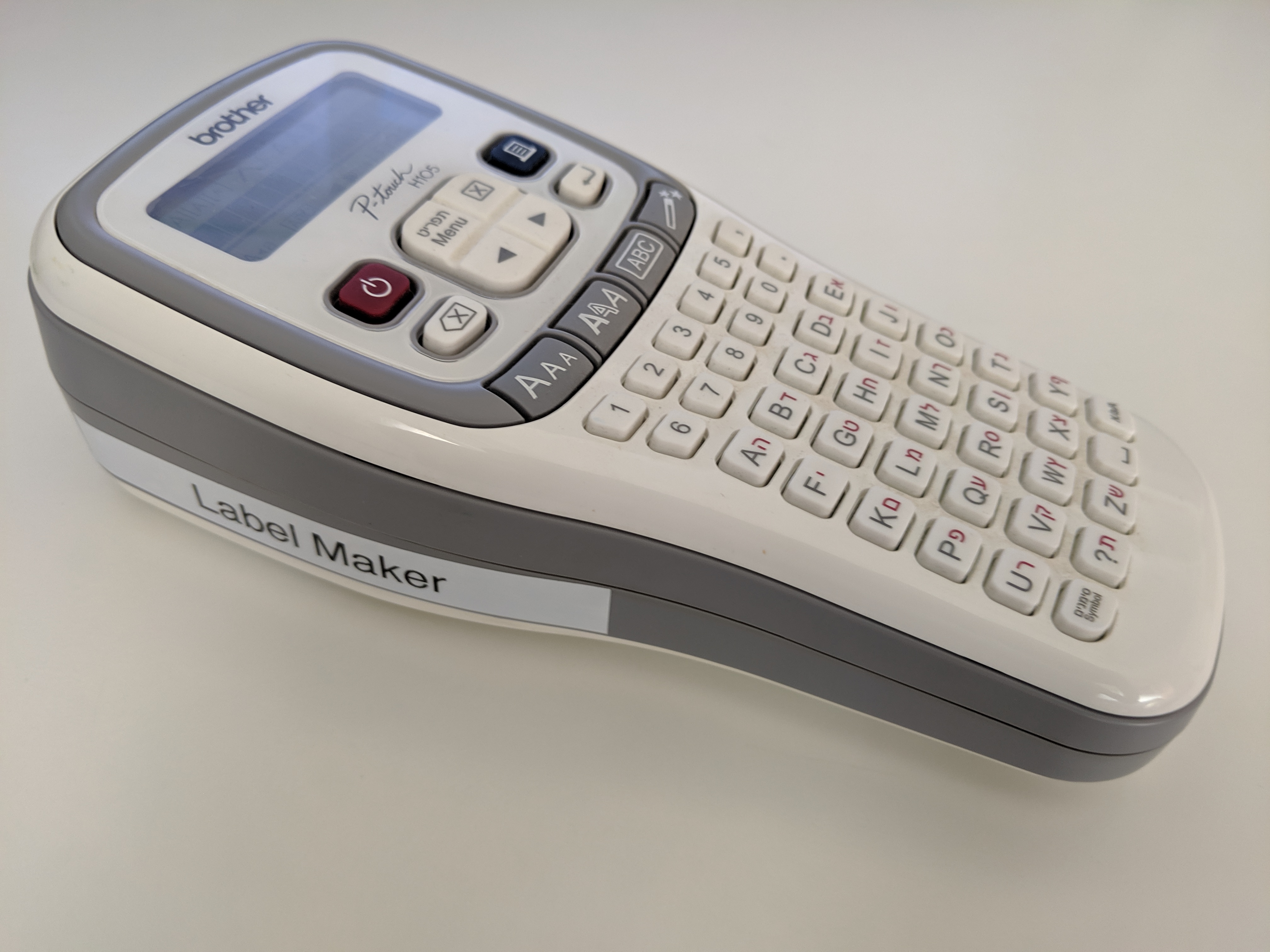Retrospect Early and Often
Medicine, IKEA and a Brother P-touch H105

A few weeks ago my parents were visiting us in our apartment. My mom was looking for something in the kitchen and came across our medicine drawer. It was quite packed with all sorts of stuff, from cough drops and bandages to expired pills from eight years ago. Being a polish mother, my mom gave me a serious look and asked “is anyone sick?”.
Immediately it occurred to me that, although my mom is exaggerating, our medicine drawer isn’t really working out for us and that it’s been low-key bothering me for several years now. First of all, the drawer was low enough for our now three year old daughter to reach, which is just plain dangerous. But it wasn’t even serving us properly. We always have to search through a big pile of expired, irrelevant medication, while we were using maybe 2% of it on a regular basis. The Advil, cough drops and vitamins were always just lying on the kitchen counter anyway.
I asked my wife to join me in fixing the situation and we decided on some ground rules:
- Medicine should be stored in a high out-of-reach place.
- Medicine we regularly use should be accessible in a convenient place.
- It should be relatively easy to find what you’re looking for.
- We need to make a detailed run-through and throw out any expired medicine before putting any new solution in place.
Sorting everything out wasn’t hard. We took a few IKEA boxes (always convenient to have some spare IKEA storage stuff lying around) and sorted the medicine into four boxes: “Painkillers and Supplements”, “Child Medicine”, “Adult Medicine” and “Injuries”. To make things official, I labeled the boxes with my precious P-touch label maker (a must purchase, if you take anything from this).

Strong Opinion, Weakly Held
Retrospection is done on an existing decision. When you make your first decision about something, you are less informed than you will ever be about it. But it’s important to make decisions, even if they are misinformed (e.g., when you move to a new apartment, you have to place your medicine somewhere). So make a decision, but realize that there’s a good chance it’s the wrong one, and be open to changing it.
Retrospect Early and Often
There’s an adage in software development - “Ship early and often”. The point is to get feedback from users as soon as possible and iterate on a solution. When you have a tight feedback loop, you can respond faster to users’ interaction with your product and shape it so that it fits just right.
I think the key point in this story is retrospection. The situation wasn’t working for us, but we weren’t “tuned” to listen to that nagging feeling that things could be better. And once we had an external event that forced us to think about the situation, we didn’t just react. We reflected on what’s bothering us and how we’re actually using the medicine drawer. The new situation is better because it’s based on our actual experience and not just the instinct we had when we moved into our apartment several years ago.
And of course, this isn’t just about medicine cabinets. When I first met my wife, I was a disorganized slob. I don’t want to exaggerate - I was doing okay being a Software Engineering student, working part time at Intel and enjoying the high-tech salary life. But when we moved in together, it was clear that we have a problem. Our thresholds for disorganization and cleanliness were just misaligned. She would do most of the housework simply because it bothered her first.
At some point I just realized that this isn’t going to work. But also, that I just can’t count on my own intuition. I’m an engineer, and this problem required a system. So I read Getting Things Done and
it changed my life.
If you look at personal productivity systems like Getting Things Done or Bullet Journaling, you can see that most of them have a retrospective aspect to them. In GTD, it’s the weekly review, where you go through your open projects, tasks, someday / maybe lists and reflect on them. In Bullet Journaling it’s the monthly log - where you migrate all the open bullets from the previous month to the new one, reviewing them as you go and removing the items that don’t really need to happen.
Your mother can’t go through all the “drawers” in your life, and no one else will do it for you, either. It’s important to find a way to question earlier decisions and come up with better solutions - from where you put your medicine to how you’re raising your children. Personal productivity systems usually include retrospectives in their toolbox and that’s one way to do it. But you can just take some time, once in a while, and think:
“Is this working for me? Can this be better?”
Follow me on Twitter and Facebook
Thanks to Yonatan Nakar, Shachar Ohana, Ram Rachum, Hannan Aharonov and Daniel Yosef for reading drafts of this.